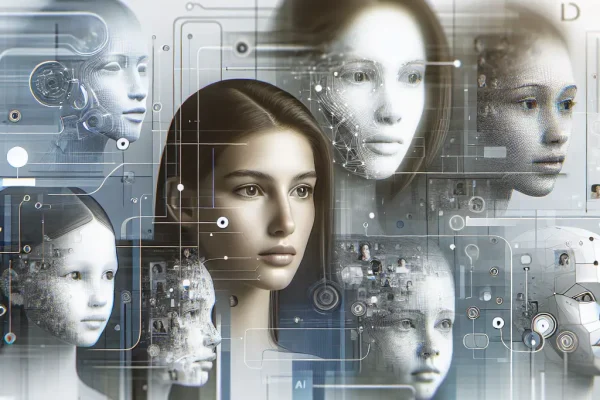Did you know? In 2024, over half a million vehicles from both luxury and mainstream automakers were recalled—not for engine or brake issues, but because of critical software glitches. If you thought your car’s biggest risk was mechanical, think again: digital malfunctions are now leaving drivers stranded, compromising road safety, and upending the industry’s reputation. The digital transformation of the auto sector is hitting major potholes, shaking consumer trust and putting everyday drivers at risk.
The rise of automotive software failures is more than a tech hiccup. It’s a red-alert moment showing how complex car code is endangering safety, brand loyalty, and even the viability of some of the world’s most iconic car brands. As multiple leading analysts warn (Financial Times; Reuters; Bloomberg), software bugs are quickly becoming the new front in the battle for car reliability—and the public’s confidence.
The Problem: Automotive Software Failures Are Getting Worse
As cars become “rolling computers,” advanced infotainment, lane assist, over-the-air updates, and battery management systems all rely on millions of lines of code. Yet, carmakers are struggling with software at an unprecedented scale. A recent Financial Times investigation found executives at major carmakers privately admit their vehicles are “full of bugs”—sometimes in basic, safety-critical systems.
- Why are carmakers struggling with software? Unlike big tech, automakers have limited experience with agile development, fast feedback loops, and cybersecurity defense. The result: bloated, rushed code that’s not sufficiently tested.
- Automotive digital transformation challenges include integrating legacy suppliers, meeting regulatory demands, and the sheer pace of connected tech advancement.
According to Bloomberg, carmakers are now prioritizing software updates over piston upgrades, but old-school engineering mindsets make agility difficult. The result? High-profile, headline-making software failures becoming routine.
Which Car Brands Have Buggy Infotainment Systems in 2024?
Luxury and mass-market brands alike are getting hit. Hundreds of thousands of vehicles have been affected this year:
- Volkswagen Group: Persistent ID series glitches, including blank screens and failed updates.
- Mercedes-Benz: MBUX system freezing, climate controls inaccessible while driving.
- Tesla: Phantom braking and autopilot misbehaviors linked to software updates.
- Ford and GM: Navigation errors, system reboots, and wireless CarPlay/Android Auto dropouts.
A Reuters analysis reported, “Software malfunctions are now the top cause of vehicle recall notices in 2024, eclipsing traditional hardware defects.”
Why It Matters: The Human and Economic Impact
Automotive software failures aren’t just frustrating—they can be life-altering or even fatal. How do software bugs affect car safety? Consider the following scenarios from real-world events in 2024:
- Safety Risks: Some bugs disable emergency braking, lane-keeping assist, or even airbags, making collisions more likely or more dangerous.
- Carmaker Recalls Due to Software Glitches: The U.S. saw more than 30 major safety recalls due to software alone in the first half of 2024—a record high (Reuters).
- Driver Trust: Owners stranded by failed over-the-air updates or sudden “bricked” dashboards are voicing outrage, eroding trust in the brands that sold them a “smarter” vehicle.
- Economic Fallout: Software issues mean multi-billion dollar repair costs, legal battles, and plummeting resale values—especially for electric and high-tech cars.
As Financial Times notes, buyers are starting to ask: “If my smartphone gets daily bug fixes and security patches, why is my $70,000 automobile less reliable?” (Financial Times)
Expert Insights & Data: The Software Reckoning
Industry leaders and analysts are sounding the alarm:
- “Automakers are fundamentally unprepared for the complexity of modern vehicle software,” says a global CTO at a leading carmaker (Financial Times).
- Between 2017 and 2023, software-related recalls jumped over 300%, accounting for nearly 1 in 5 recalls globally by 2024 (Reuters).
- A typical midrange EV now contains up to 150 million lines of code, more than a commercial airliner.
According to Bloomberg, car companies are now recruiting thousands of software engineers to avoid the worst car software bugs of 2024 and stem the tide of negative headlines and recalls. Yet, a global skills shortage means improvement will be slow (Bloomberg).
Table: Worst Car Software Bugs 2024 – Impact Comparison
| Brand | Bug | Vehicles Affected | Safety Impact | Recall Action |
|---|---|---|---|---|
| Volkswagen | Infotainment reboot loop | 85,000+ | Navigation & rear camera disabled | OTA update |
| Tesla | Phantom braking Autopilot disengagements | 120,000 | Increased accident risk | Software rollback |
| Ford | Wireless CarPlay drops | 70,000 | Distracted driving hazard | Dealer reflash |
| Mercedes-Benz | MBUX frozen displays | 40,000 | Climate & safety system access lost | OTA update + manual reset |
Infographic suggestion: “2024 Top Software Recalls—By Brand and System Type” (Bar chart with Y-axis: Number of Recalls, X-axis: Brand/System; overlay with loss-of-function icons)
How Bad Software Damages Automaker Reputation
Reputation is everything in the fiercely competitive automotive world. Yet, in 2024, a wave of negative headlines is sweeping through both established icons and agile disruptors.
- Brand Loyalty: McKinsey’s 2023 consumer survey found buyers were 2.5x more likely to switch brands after software-driven inconvenience or recall.
- Stock Market Impact: The average stock price drop after a software recall averaged 5.5% within two weeks (Financial Times).
- Social Media Backlash: Viral complaints about freezing screens or navigation meltdowns are eroding confidence among younger, tech-focused buyers.
As The Financial Times put it, “Automotive digital transformation challenges are now existential. Bad code and slow fixes aren’t just a tech issue—they’re a direct assault on brand trust.”
The Future of Car Software Updates: Risks and Opportunities
Looking ahead to 2025 and beyond, a seismic shift is underway. The burning question: Will carmakers finally close the software gap, or is the next recall lurking in the dashboard?
- OTA Updates as a Solution and Risk: Over-the-air updates mean carmakers can patch vehicles instantly, cutting maintenance and responding rapidly to threats. But rushed updates can brick cars nationwide in minutes.
- Rise of Automotive Software Platforms: Tech giants like Google and Apple are consolidating in-vehicle OS design, possibly making cars more stable—but forcing automakers to become software resellers rather than creators.
- Cybersecurity Front Lines: With vehicles now “internet-connected devices,” the attack surface is enormous. Ransomware or bugs can disable fleets overnight, and regulatory scrutiny is intensifying.
- Sustainability and Efficiency: Smarter software can optimize battery usage, route planning, and emissions—but only if the code works reliably.
The next five years will see carmakers either transform into digital mobility powerhouses or risk extinction amid a torrent of digital recalls and lost consumer faith (Bloomberg).
Related Links
- [External: MIT Electric Vehicle Battery Study]
- [External: NASA Urban Air Mobility Report]
- [External: WSJ: The Digital Wave Reshaping Automakers]
FAQs
Why are carmakers struggling with software?
Automakers lack the deep software expertise of tech giants, face supply chain challenges, and must comply with strict regulations—all while integrating complex hardware and digital features. This results in rushed, buggy code and frequent failures (Financial Times).
Which car brands have the most buggy infotainment systems?
In 2024, Volkswagen, Ford, Mercedes-Benz, and Tesla have all reported significant infotainment software failures leading to recalls and owner frustration (Reuters).
How do software bugs affect car safety?
Software bugs can disable vital features like automatic braking or navigation, create driver distractions, and even lead to serious accidents—turning minor glitches into real hazards.
What are the worst car software bugs of 2024?
Some of the biggest issues this year include Tesla’s phantom braking, VW’s infotainment reboot loops, Ford’s dropped CarPlay connections, and Mercedes MBUX system freezes.
How does bad software damage automaker reputation?
Frequent glitches and recalls erode consumer trust, spark negative press, fuel social media outrage, and directly reduce brand loyalty—sometimes hitting share prices, too.
Conclusion: Will Drivers Regain Trust in the Digital Age?
Automotive software failures are no longer a niche problem—they’re the defining challenge of digital mobility in 2024. As recalls soar, brands scramble to adapt, and buyers get warier than ever, the industry faces a moment of reckoning. The winners will be those who can fix the code, rebuild trust, and embrace agile, secure, human-centered design. For drivers, vigilance is now as important as horsepower.
Share this if you believe your car’s most important safety feature might just be its next software update.


